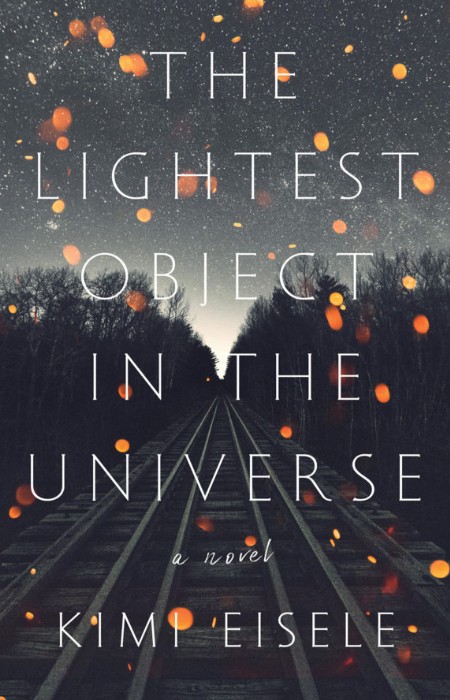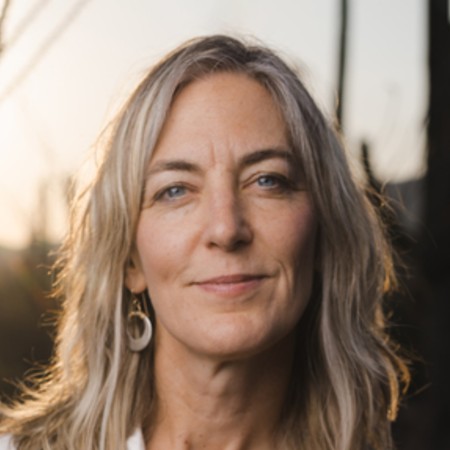
When it comes to the end of the world, a subject with which humanity, especially in pandemic-plagued 2020, seems to have an endless fascination, the assumption almost always is that nothing good can come of it.
That’s fair enough – on the surface, and even deep down among the zombies, pestilence, climate catastrophes and alien invasions, the idea of everything we know, and mostly love, ending fails to feel like anything but the most horrific thing ever with no upside whatsoever.
But a few literary voices, among them Emily St. John Mandel (Station Eleven), Peng Shepherd (The Book of M) and now Kimi Eisele with The Lightest Object in the Universe, have dared to put the forth the idea that perhaps the end of life as we know it doesn’t necessarily have to be the end of humanity and all its tenacious promise.
It’s a beguiling idea, made all the more so by the willingness of these writers to be honest about all the terrible things that come staggering forth from such a nightmarish scenario.
There’s no gilding of the lily nor wearing of rose-coloured glasses at work here; if anything, there is a resolute determination to be open and honest about how bad things could get without the comforting bonds of civilisation holding us together.
Where authors like Eisele come into their own in this blood and violence soaked genre is that they believe, and with solid argument and an innate understanding of the complexity of the human condition informing their writing, that the inventiveness, tenacity and compassion that got humanity this far up the evolutionary ladder won’t desert them when everything goes catastrophically wrong.
“Near the end of the exhibit, Carson and Beatrix stood in front of a single photograph, no story attached. A perfect boulder, the size of a small house, in the middle of a road at the foot of a mountain. Had it rolled down the slope? Or been placed there by a team of men?
‘The heaviest object in the universe,’ Carson said, reaching for Beatrix’s hand.
…
‘What?’ she said, letting go and stepping closer to the frame.
‘Grief,’ Carson said.
…
‘Good thing for the lightest then,’ she said.
‘What’s that?’
Beatrix felt her face flush. Warmth rushed into her chest. Love. Love was the lightest object, the thing that elevated you and kept you aloft. She fluttered a hand at the image and said, ‘Birds.'” (PP. 154-155)
In fact, as Eisele explores beautifully in the immersively compelling The Lightest Object in the Universe it is our very capacity to keep on going as a species when everything says we should just down tools and give up, that comes to the fore in times of crisis rather than retreating and leaving us to our own vastly diminished resources.
Centering on long-distance couple West Coast USA-based Beatrix Banks, a long-time campaigner for Fair Trade causes and activist for the poor and marginalised peoples of the world, and East Coast-based Carson Waller, a high school principal mourning the death of his wife June, The Lightest Object in the Universe celebrates, in ways that are quietly poignant and powerfully moving, the ability of humanity to start all over again in the most dire of circumstances.
Living, with little warning, in a world where electricity power has vanished overnight and a virulent flu has laid fatal waste to considerable swathes of humanity – the only ones immune, and they are enough that society retains enough people with the requisite skill and knowledge to rise from the viral ashes, are those who caught an earlier milder form of the disease – Beatrix and Carson have to figure out whether the end of the world is the finish line for humanity or a bright and promising new beginning?
Again, if you were looking at this from a distance, you could be forgiven for thinking why bother, what is there to live for, but when you are in the midst of it, as are Beatrix and Carson, and this is your life and not some emotionally-remote academic musing, deliberations on what to do next can’t help but consider taking steps forward rather than collapsing dispiritedly on the spot.

Beatrix, who has just spent six weeks returning from Mexico where she was stranded when the lights, real and metaphorical, went out, comes home to find her local neighbourhood beginning to pick up the pieces, with each person using their respective skills to ensure food and medical supplies are maintained, those less fortunate are cared for and protection ensured in a world where law and order is nothing more than a memory.
Having spent much of her time prior to civilisation ending away from home, Beatrix has to get to know neighbours like Dragon, Flash, Rosie and her abuela Maria del Carmen, people who were once strangers but who quickly become close friends and then family, all of them pulling together to create the world all over again from the ground up.
While Beatrix is learning how to build chicken coops and improving her bike riding skills and learning everything there is to know about radio broadcasting, Carson is walking his way across the country, encountering people mostly good and occasionally bad, all of whom in their own way are trying to forge a new life from the darkened debris of the old.
Carson encounters those who are generous of spirit and selfless in the face of great loss but also those who are quietly menacing or crudely avaricious and those who believe the solution to a great crisis is believing the words of a cult leader known as Blue who promises that cost-free redemption from the cruel horrors of a broken world lie in coming to the “Center’ and giving yourself over to an ill-defined but glowingly cosy collective good.
In their own way, Carson and Beatrix discover how terrible humanity can be – her neighbourhood has to find a way to deal with marauding young bandits known as T-Rize – but far more importantly, and this is where the beating heart of The Lightest Object in the Universe lies, find out that the very best of us doesn’t necessarily go out when the lights do.
“Watching Rosie’s delight, Carson felt something he had not felt for a long time: Joy?
He could summon sorrow easily, could feel its weight inside him. he’d lost the past, his wife, his work, his home, the city, a friend. A world had died. But not everything had gone with it. Wasn’t this the nature of grief? That within its darkness lay the strange shape of possibility? That somehow a slant light could come through the open windows of absence and clarify the most important and beautiful things?” (P. 317)
Adding to the hopeful vivacity of The Lightest Object in the Universe is that Carson and Beatrix are two of the most vividly and authentically realised characters you will ever find in a novel occupying the apocalyptic / dystopian genre.
Each of them are fully-rounded, grounded, authentically-likable people who face up to the darkness around them by acknowledging its existence but without giving into any idea that this darkness can and will overwhelm them.
This doesn’t meant things go easy for them or some Disney-esque wand is waved; on the contrary, each of them has to deal with all kinds of trauma and loss on the way to somewhere new and promising and their path to some sort of realistic happy-ever-after comes couched in the same trials and tribulations that beset us now.
Everything around them may have changed but humanity hasn’t, good and bad, and The Lightest Object in the Universe explores how you recreate the world by drawing on the good and minimising the bad where you can.
Robust hope and grounded love fill every page of this exquisitely well-written novel which relies less on big action set pieces, of which there are few, and more on a rich distillation on humanity’s capacity to not simply hold on but to rebuild anew in the face of the end of all things.
It is a groundedly moving piece of work that celebrates love, hope and community in ways that feel tangible and real, and which, with empathy and insight, advances the idea, in ways quiet and nuanced but immensely, transformatively powerful, that the very best and lightest of things are possible even in the darkest and heaviest of times.